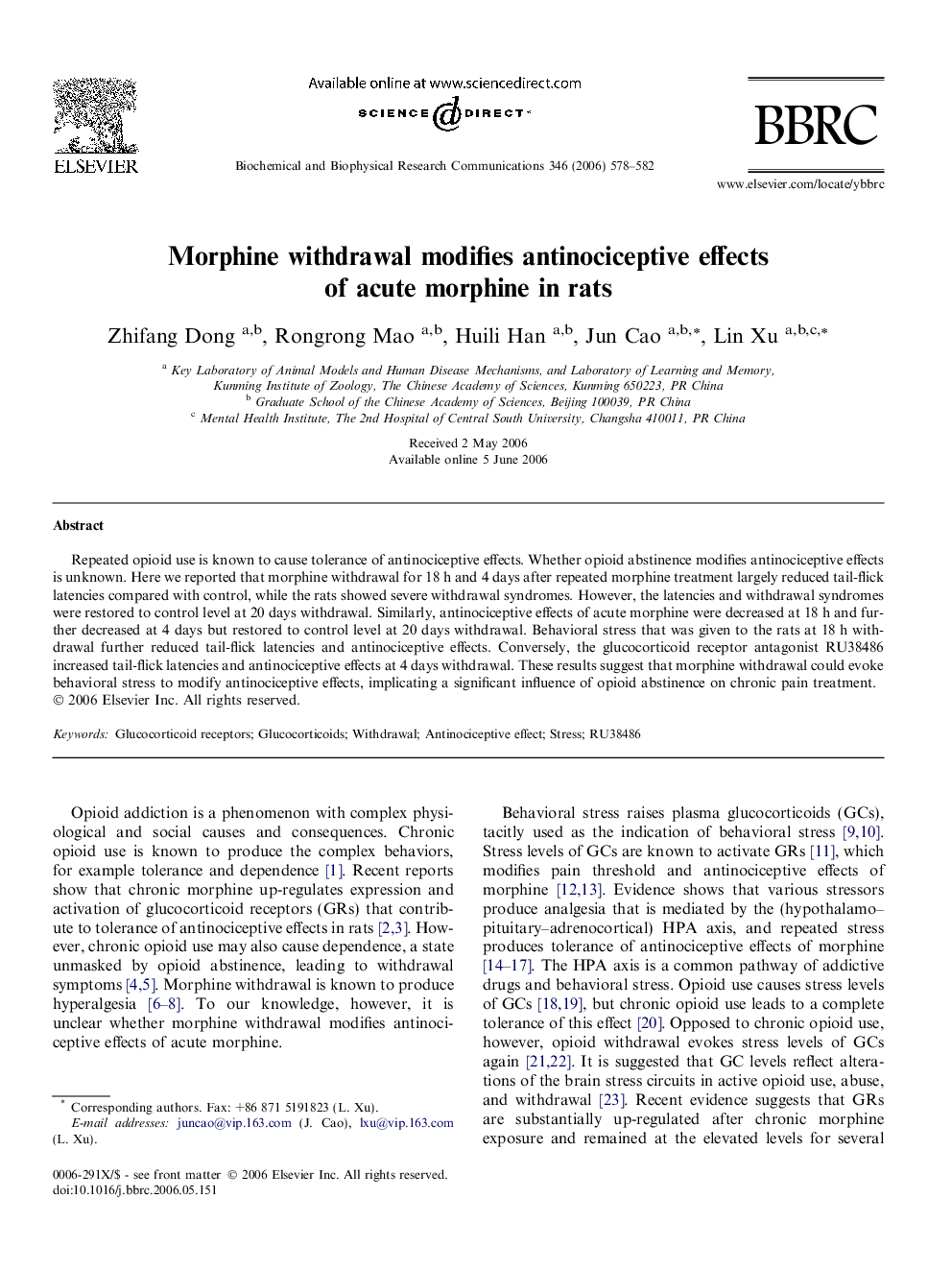| Article ID | Journal | Published Year | Pages | File Type |
|---|---|---|---|---|
| 1939425 | Biochemical and Biophysical Research Communications | 2006 | 5 Pages |
Abstract
Repeated opioid use is known to cause tolerance of antinociceptive effects. Whether opioid abstinence modifies antinociceptive effects is unknown. Here we reported that morphine withdrawal for 18Â h and 4 days after repeated morphine treatment largely reduced tail-flick latencies compared with control, while the rats showed severe withdrawal syndromes. However, the latencies and withdrawal syndromes were restored to control level at 20 days withdrawal. Similarly, antinociceptive effects of acute morphine were decreased at 18Â h and further decreased at 4 days but restored to control level at 20 days withdrawal. Behavioral stress that was given to the rats at 18Â h withdrawal further reduced tail-flick latencies and antinociceptive effects. Conversely, the glucocorticoid receptor antagonist RU38486 increased tail-flick latencies and antinociceptive effects at 4 days withdrawal. These results suggest that morphine withdrawal could evoke behavioral stress to modify antinociceptive effects, implicating a significant influence of opioid abstinence on chronic pain treatment.
Related Topics
Life Sciences
Biochemistry, Genetics and Molecular Biology
Biochemistry
Authors
Zhifang Dong, Rongrong Mao, Huili Han, Jun Cao, Lin Xu,
